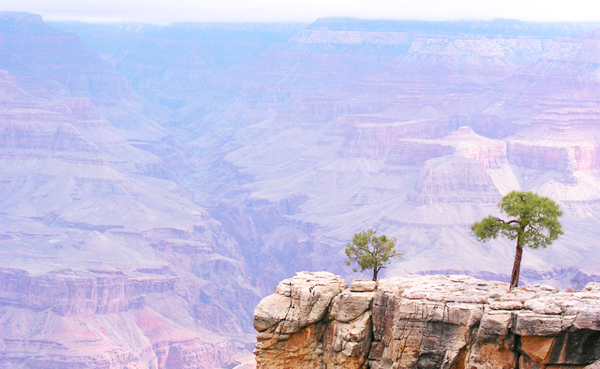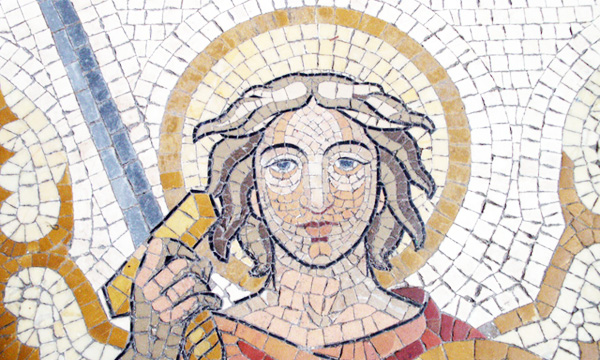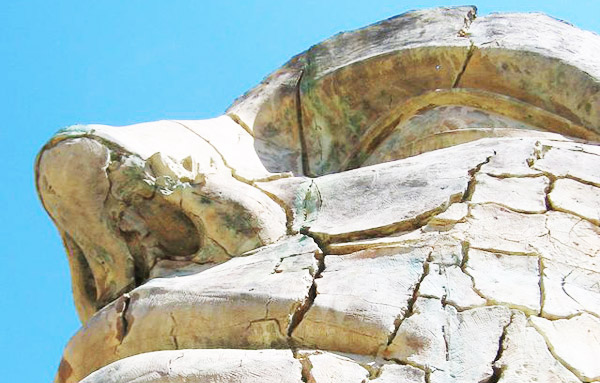In studying through a difficult passage of Scripture recently, I came across a quote from Charles Spurgeon that applies to every passage of Scripture: “My love of consistency with my own doctrinal views is not great enough to allow me knowingly to alter a single text of Scripture. I have great respect for orthodoxy, but my reverence for inspiration is far greater.
Exegesis
Babel & the Sin of Glorifying Ourselves
Then they said, “Come, let us build ourselves a city and a tower with its top in the heavens, and let us make a name for ourselves, lest we be dispersed over the face of the whole earth” (Genesis 11:4). The great sin of the city of Babel is not tower-building, or unified labor toward a societal goal. The sin of Babel is the sin of seeking independence from God.
Not a Slave, A Son
When the fullness of time had come, God sent forth his Son, born of woman, born under the law, to redeem those who were under the law, so that we might receive adoption as sons (Galatians 4:4-5).
I Thank God For You
I give thanks to my God always for you because of the grace of God that was given you in Christ Jesus (1 Corinthians 1:4). There is a theological point to make from this verse, because Paul is thanking God for his grace to believers. As he does continually in his letters, Paul is reminding the saints at Corinth that their faith, and their faithfulness, is by God’s grace and through Jesus Christ. Yet there is also a personal point not to be missed in this passage:
Stewards Must Be Faithful
It is required of stewards that they be found faithful (1 Corinthians 4:2) There is a crucial balance represented here. On one hand, stewards only manage things that have been given to their care. A steward is someone who is entrusted with property that is not his or her own. As Paul points out later in this passage, everything we have and do as Christians is merely using the strength, the giftedness, and even the faithfulness that only comes from Christ.
If We Confess Our Sins
If we confess our sins, he is faithful and just to forgive us our sins and to cleanse us from all unrighteousness (1 John 1:9). We have no idea how deeply damaging the unconfessed sin in our life is. But we also cannot imagine how powerful and wise God’s forgiveness and cleansing will be.
The Greatest of These Is Love
For now we see in a mirror dimly, but then face to face. Now I know in part; then I shall know fully, even as I have been fully known. So now faith, hope, and love abide, these three; but the greatest of these is love (1 Corinthians 13:8-13). True love is permanent. Love is eternal at its core. Because it is from God and primarily directed to God, it will never fail, never implode, never become obsolete.
Every Believer Is a Saint
To the church of God that is in Corinth, to those sanctified in Christ Jesus, called to be saints together with all those who in every place call upon the name of our Lord Jesus Christ, both their Lord and ours (1 Corinthians 1:2). Paul’s first letter to the Corinthians is an epistle written to straighten out a church with a host of serious problems. Yet as such it is helpful and enlightening and inspiring to see how Paul the theologian addresses his deep, rich theology to specific, messy, practical issues as Paul the pastor.
Everything For Your Good
We know that for those who love God all things work together for good, for those who are called according to his purpose (Romans 8:28). What a sweeping, staggering claim this is! And yet Paul says we can know for certain that all the details of our lives are working together for our good, as believers in Jesus Christ. How do we know this?
Christ, the Power & Wisdom of God
We preach Christ crucified, a stumbling block to Jews and folly to Gentiles, but to those who are called, both Jews and Greeks, Christ the power of God and the wisdom of God. For the foolishness of God is wiser than men, and the weakness of God is stronger than men (1 Corinthians 1:23-25).
Every Human an Image-Bearer
Whoever sheds the blood of man, by man shall his blood be shed, for God made man in his own image. And you, be fruitful and multiply, increase greatly on the earth and multiply in it (Genesis 9:6-7). God knows that humans are fallen, broken creatures. Even as Noah steps off the Ark into the new, post-Flood world, God is already addressing the issue of homicide.
What It Means To Walk With God
O Lord, you have searched me and known me! (Psalm 139:1) Notice two things from this brief statement. First, it recognizes the fact that God knows us, is intimately acquainted with us. Second, it is a prayer. It is a prayer from the psalmist, talking to God, and recognizing God’s ever-presence with him. This is the essence of walking with God.
God Gets the Glory For Your Achievements
You cause the grass to grow for the livestock and plants for man to cultivate, that he may bring forth food from the earth and wine to gladden the heart of man, oil to make his face shine and bread to strengthen man’s heart (Psalm 104:14-15). The psalmist is worshiping God for all his creative acts and wonders. And among the things God gets credit for, according to Scripture, is the results of human labor!
Bone of My Bones, Flesh of My Flesh
The man gave names to all livestock and to the birds of the heavens and to every beast of the field. But for Adam there was not found a helper fit for him. So the Lord God caused a deep sleep to fall upon the man, and while he slept took one of his ribs and closed up its place with flesh. And the rib that the Lord God had taken from the man he made into a woman and brought her to the man (Genesis 2:20-22) What a precious scene!
I Will, If the Lord Permits
…I hope to spend some time with you, if the Lord permits (1 Corinthians 16:7). Even the best of desires may not be brought to fruition here on earth. Even our best kingdom visions may never be fulfilled. And even our best plans may never come to pass. Here even the apostle Paul himself admits that his plans are fallible and must therefore be flexible. “I have made my very best plans,” Paul says, “and am operating according to them to the best of my ability—but all the while in the recognition that my plans may not be God’s plans.”














